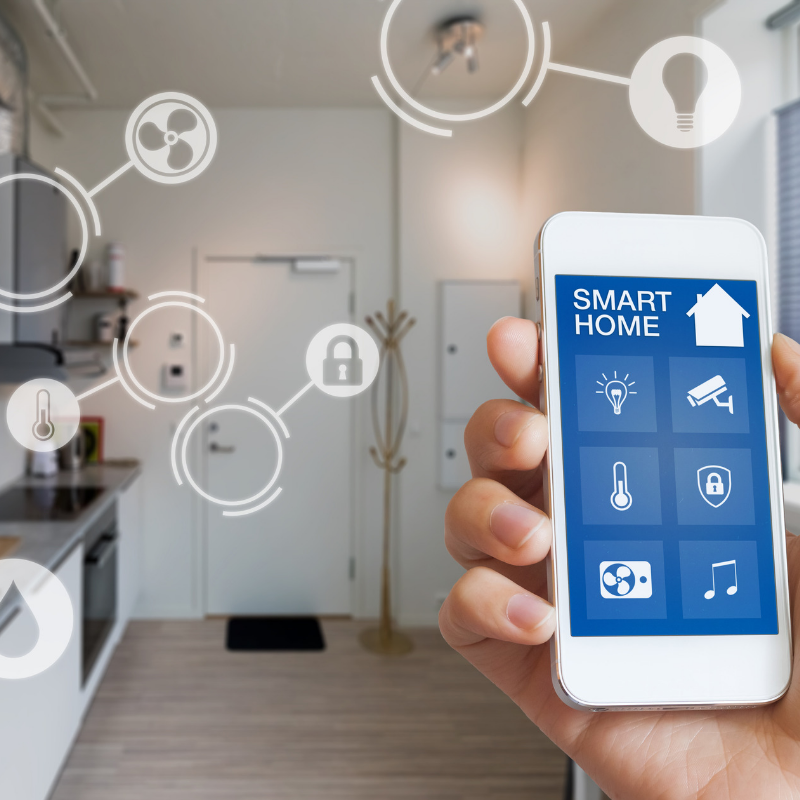Rise by Six: Your Daily Dose of Inspiration
Explore insights and stories that elevate your day.
Are Smart Homes Listening to Your Secrets?
Discover the truth about smart homes—are they spying on your secrets? Uncover the hidden risks and protect your privacy today!
Do Smart Home Devices Really Eavesdrop on You?
As smart home devices become increasingly prevalent in our daily lives, concerns about privacy and security have emerged. Many users wonder, do smart home devices really eavesdrop on you? The truth is that while these devices do listen for wake words, such as 'Hey Siri' or 'Okay Google,' they typically only process audio when activated. However, the potential for unintended recording and data collection exists, especially if users do not optimize their privacy settings. To mitigate risks, it’s essential to regularly review device permissions and understand how your data is being utilized.
Moreover, it’s important to recognize that smart home devices can differ significantly in their privacy protocols. Some manufacturers have invested in advanced encryption and user consent features, while others may have less transparent practices. To protect yourself, consider the following tips: 1. Read the privacy policy of your devices; 2. Disable features like voice recording if unnecessary; 3. Keep firmware updated. By taking these steps, you can enjoy the convenience of smart technology while minimizing the risks associated with eavesdropping.

The Truth About Smart Home Privacy: Are You Being Watched?
As smart home technology continues to proliferate, many consumers are left questioning their privacy. Smart devices like smart speakers, cameras, and thermostats are designed to enhance convenience; however, they also collect vast amounts of data. This data can include everything from your daily routines to your personal preferences, often creating a digital profile that could be misused. Moreover, many of these devices are constantly listening or monitoring their environment, which raises the concern: are you being watched? Understanding how this data is shared and secured is crucial in navigating the modern smart home landscape.
While manufacturers often promise tight security measures, breaches, and software vulnerabilities can expose sensitive information. Users may inadvertently grant permissions that allow devices to access far more than intended. To protect your privacy, it's essential to consider several factors:
- Device Permissions: Regularly review and modify permissions for each smart device.
- Network Security: Ensure your home network is secure by using strong passwords and updated firmware.
- Data Management: Understand how your data is collected and used, and opt out of data sharing if possible.
By being aware of these issues, you can take steps to safeguard your privacy while enjoying the benefits of smart home technology.
How to Protect Your Secrets in a Smart Home Environment
In today's connected world, protecting your secrets in a smart home environment has become increasingly vital. While smart devices offer convenience, they also introduce potential vulnerabilities. Start by ensuring that all your devices are updated with the latest security patches. Regularly check for firmware updates and enable automatic updates whenever possible. Additionally, create strong, unique passwords for each device and use two-factor authentication to add an extra layer of protection. Implementing a robust network firewall can also help shield your devices from unauthorized access.
Another crucial step in protecting your secrets is to manage your smart home ecosystem thoughtfully. Organize your devices into separate networks to limit access between them. For instance, place your smart cameras on one network and your smart speakers on another. Furthermore, be cautious about what information you share with voice assistants and smart home applications. Regularly review the privacy settings and data sharing permissions for each device to ensure that sensitive information remains confidential.